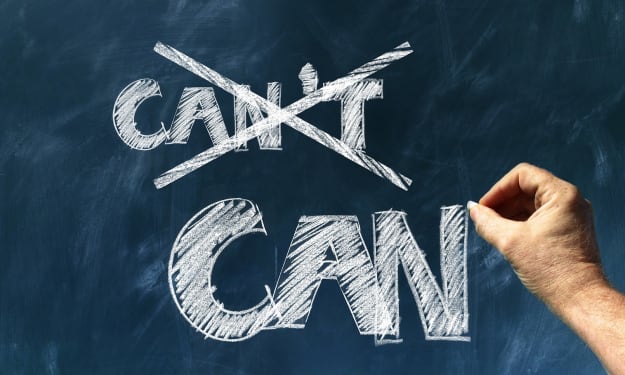Building an Emergency Fund: A Crucial Step Towards Financial Security
Secure Your Future: Building an Emergency Fund for Financial Resilience

Introduction:
In today's uncertain world, having a solid emergency fund is no longer an option but a necessity. Life is unpredictable, and facing emergencies such as medical expenses, job loss, or car repairs without a financial cushion can be incredibly stressful. In this comprehensive guide, we will delve into the importance of building an emergency fund and provide practical steps to create and grow one that suits your needs while incorporating essential SEO keywords to ensure this vital information reaches those who need it most.
1. Why an Emergency Fund Matters:
An emergency fund acts as a financial safety net during unforeseen circumstances, offering you the peace of mind that you can cover urgent expenses without resorting to high-interest loans or tapping into your savings earmarked for other goals. With a robust emergency fund, you can maintain financial stability and avoid falling into debt during challenging times, making it an essential component of any well-rounded financial plan.
2. Setting Realistic Goals:
The first step in building an emergency fund is setting achievable goals. Start by assessing your monthly expenses, including rent/mortgage, utilities, groceries, insurance, and other necessities. Aim to save at least three to six months' worth of living expenses. For those with fluctuating incomes or greater financial responsibilities, a larger emergency fund may be prudent to ensure adequate coverage during extended emergencies.
3. Prioritize Saving:
Treat your emergency fund as a non-negotiable monthly expense. Allocate a fixed portion of your income solely for this purpose. Automate the process by setting up an automatic transfer to your emergency fund account as soon as you receive your paycheck. Consistent contributions will steadily grow your fund over time, inching you closer to your financial security goals.
4. Explore High-Interest Savings Accounts:
When building your emergency fund, it's essential to maximize the growth of your savings. Consider opening a separate savings account specifically for your emergency fund and research banks or credit unions that offer competitive interest rates. High-interest savings accounts allow your money to work harder for you, ensuring that your emergency fund keeps pace with inflation and retains its value.
5. Cut Unnecessary Expenses:
Building an emergency fund requires discipline and occasional sacrifices. Review your monthly spending and identify areas where you can cut back. Small lifestyle adjustments, like cooking at home more often or canceling unused subscriptions, can free up extra funds for your emergency savings. Every penny counts when building a financial safety net.
6. Windfalls and Bonuses:
Make the most of unexpected windfalls, such as tax refunds or work bonuses, to boost your emergency fund. While it's tempting to splurge, using these extra funds wisely can significantly accelerate your savings progress. Consider allocating a portion of windfalls directly into your emergency fund to ensure you're always prepared for unforeseen circumstances.
7. Stay Committed:
Building an emergency fund may take time, but consistency is key. Stay committed to your savings plan, even if progress seems slow at first. Remember that every dollar saved brings you closer to financial security and resilience. Regularly reassess and adjust your savings goals based on changes in your life and financial situation.
Conclusion:
Building an emergency fund is a crucial step towards achieving financial security and peace of mind. It empowers you to face life's uncertainties without compromising your long-term financial goals. Start small, stay consistent, and watch your emergency fund grow into a safety net that will support you during unexpected challenges. By prioritizing financial preparedness and following these steps, you take control of your financial future and ensure a more stable and resilient life.
Here are some highly recommended books related to personal finance and emergency fund building:
"The Total Money Makeover" by Dave Ramsey: This book offers practical advice on managing money, getting out of debt, and building an emergency fund. It provides a step-by-step plan to achieve financial freedom and peace of mind.
"The Automatic Millionaire" by David Bach: This book emphasizes the importance of automating your finances to save and build wealth effortlessly. It includes valuable insights on setting up and growing your emergency fund.
"Your Money or Your Life" by Vicki Robin and Joe Dominguez: This classic book presents a nine-step program for transforming your relationship with money, achieving financial independence, and securing your future through emergency funds and savings.
"I Will Teach You to Be Rich" by Ramit Sethi: Focused on young professionals and beginners in personal finance, this book covers a range of topics, including building an emergency fund and automating your finances for financial success.
"Smart Women Finish Rich" by David Bach: While targeted towards women, this book is relevant to anyone looking to achieve financial security. It provides actionable steps for building an emergency fund and making wise financial decisions.
"The Richest Man in Babylon" by George S. Clason: This classic book offers timeless financial advice through entertaining parables. It includes valuable lessons on saving, investing, and building an emergency fund.
"Financial Peace Revisited" by Dave Ramsey: A revised and updated version of Dave Ramsey's bestseller, this book provides practical strategies for achieving financial peace, including building and maintaining an emergency fund.
"The Bogleheads' Guide to Investing" by Taylor Larimore, Mel Lindauer, and Michael LeBoeuf: While focused on investing, this book emphasizes the importance of having a solid financial foundation, which includes building emergency funds and being financially prepared for unexpected events.
"Set for Life" by Scott Trench: Geared towards young professionals, this book explores the concept of financial independence and provides insights on building an emergency fund and establishing a strong financial base.
"Why Didn't They Teach Me This in School?" by Cary Siegel: This book offers practical financial advice for young adults, covering topics like budgeting, saving, and building emergency funds in simple and easy-to-understand language.





Comments
There are no comments for this story
Be the first to respond and start the conversation.